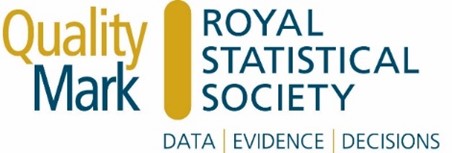 Graduate Statistician (GradStat) and Quality Mark of Royal Statistical Society (RSS) Graduate Statistician (GradStat) and Quality Mark of Royal Statistical Society (RSS)


The University of Hong Kong (HKU) has been awarded the status of an Accredited University by the Royal Statistical Society (RSS) since December 2023. The RSS accreditation provides reassurance that the teaching, learning and assessment within the accredited programme is of high quality and meets the needs of students and employers.
Upon completion of the Master of Data Science (MDASC) programme at HKU and application to RSS via the standard route, graduates are qualified to become a Graduate Statistician (GradStat) designated by RSS (link).
In addition, the RSS has awarded individual HKU courses with the RSS Quality Mark (link), a recognition that these courses teach good statistical literacy. Students who have passed these courses are deemed to have met the academic requirements of the RSS Data Analyst award (link).
|